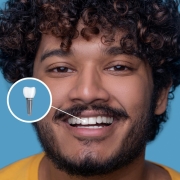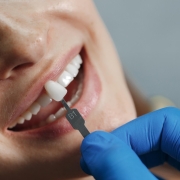Why Get a Metal Crown? 3 Reasons
Do you need a dental crown? Are you having difficulty deciding which material to have your crown made from? The dentist in Jacksonville, FL can help you weigh the options and make the best decision. Many people choose metal if the crown is in an out-of-the-way location in the mouth. Below are some of the reasons you might choose metal for your dental crown.
1. Metal Lasts
Metal is a long-lasting material. Of all the types of material types that your dental crown can be made from, metal lasts the longest. You can expect your metal dental crown to last as long as 15 years or more if you maintain good oral hygiene habits and take good care of your crown. Brush your teeth regularly, floss according to your dentist’s instructions, and see the dentist twice annually. Doing these things can help your dental crown last as long as possible.
2. Your Dentist Will Shave Down Less Tooth
When you get a crown, the dentist must shave down part of your tooth to make room for the crown. Metal crowns are very thin – thinner than other materials like porcelain. If you choose to install a metal crown, this means that your dentist will be able to save more of your natural tooth.
3. Less Noticeable At the Back of Your Mouth
As long as you’re getting a crown on one of your molars, a metal crown will be hard to notice. Even though metal doesn’t look like natural tooth enamel, most people won’t see that you have a crown at all. Do you need a dental crown in Jacksonville, FL? If so, call the dental professionals at Mandarin Dentistry to make your next appointment.







